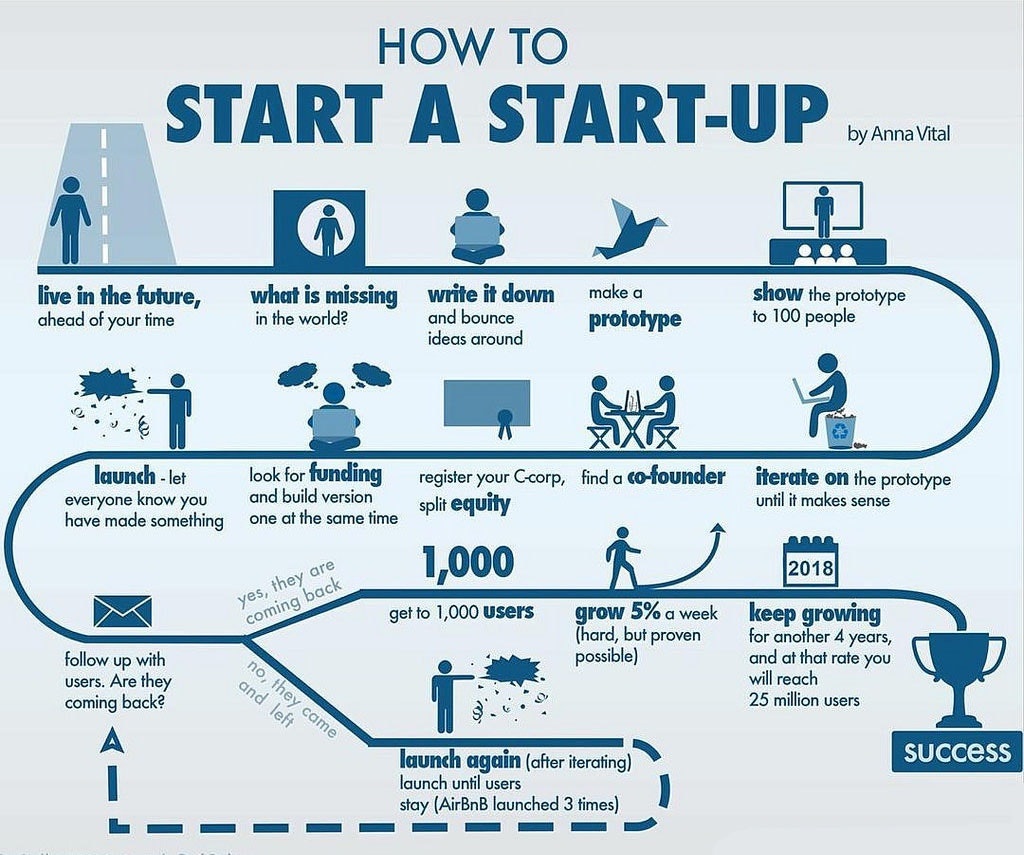Create a Winning Startup Plan sets the stage for entrepreneurial success, outlining crucial strategies and elements for launching a thriving business venture. Dive into the depths of startup planning with this comprehensive guide.
Elements of a Winning Startup Plan
Starting a new business venture can be an exciting yet challenging endeavor. A successful startup plan is essential to navigate the competitive landscape and achieve sustainable growth. Let’s delve into the key components necessary for a winning startup plan.
Importance of a Clear Mission Statement
A clear mission statement serves as the foundation of a startup plan, guiding the company’s purpose and direction. It articulates the core values, target market, and goals of the business, providing a roadmap for decision-making and strategy development.
- Defines the Purpose: A well-defined mission statement communicates the reason for the business’s existence, helping to align all stakeholders towards a common goal.
- Guides Decision-Making: By outlining the values and objectives of the company, a mission statement assists in making informed choices that are in line with the overall vision.
- Attracts Stakeholders: A compelling mission statement can attract investors, customers, and employees who resonate with the company’s values, fostering loyalty and support.
Role of Market Analysis and Competition Research
Market analysis and competition research are crucial components of a winning startup plan, providing valuable insights into industry trends, customer needs, and competitive positioning.
- Identifying Opportunities: Through market analysis, startups can uncover untapped market segments, emerging trends, and potential gaps in the industry that present growth opportunities.
- Evaluating Competitors: Understanding the competitive landscape helps startups differentiate their offerings, identify unique selling points, and develop strategies to outperform rivals.
- Mitigating Risks: By conducting thorough research on market dynamics and competitor strategies, startups can anticipate challenges, mitigate risks, and adapt their business model accordingly.
Significance of Setting Measurable Goals and Milestones
Setting measurable goals and milestones is essential for tracking progress, evaluating performance, and staying focused on key objectives throughout the startup journey.
- Clarifies Objectives: Specific, measurable goals provide a clear direction for the startup, ensuring that all efforts are aligned towards achieving tangible outcomes.
- Monitors Progress: Milestones act as checkpoints to assess progress, identify bottlenecks, and make necessary adjustments to stay on course towards success.
- Drives Accountability: Establishing measurable goals creates accountability within the team, motivating individuals to strive towards achieving targets and contributing to the overall success of the startup.
Developing a Strong Value Proposition

In the context of a startup plan, a value proposition is a clear statement that explains how a product or service solves customers’ problems, delivers specific benefits, and why customers should choose it over the competition. It is essentially the unique value that a business promises to deliver to its customers.
Examples of Compelling Value Propositions, Create a Winning Startup Plan
- Uber: “Get a ride in minutes. It’s the 21st century, after all.”
- Airbnb: “Book unique homes and experiences all over the world.”
- Slack: “Be less busy.”
Tailoring a Value Proposition to Target Customers’ Needs
When tailoring a value proposition to target customers’ needs and preferences, startups must conduct thorough market research to understand their target audience. This involves identifying pain points, desires, and preferences of potential customers to create a value proposition that resonates with them. By addressing specific needs and offering unique benefits, startups can differentiate themselves in the market and attract customers.
Connection Between a Strong Value Proposition and Attracting Investors
A strong value proposition is essential for attracting investors as it demonstrates the viability and potential success of a startup. Investors are interested in startups that offer a clear value proposition that addresses a real market need and has the potential for growth and profitability. A compelling value proposition not only attracts customers but also convinces investors of the startup’s value and potential return on investment.
Crafting a Sustainable Business Model: Create A Winning Startup Plan
In order to build a successful startup, it is crucial to craft a sustainable business model that can adapt to changing market conditions and ensure long-term growth. This involves creating a revenue model that aligns with the value proposition of the business, as well as focusing on scalability and sustainability to drive future success.
Comparing Different Business Models
When it comes to choosing a business model for your startup, it is important to consider the specific needs and goals of your business. Different business models, such as subscription-based, e-commerce, marketplace, or SaaS (Software as a Service), offer unique advantages and challenges. For example, a subscription-based model provides recurring revenue but requires a strong customer retention strategy, while an e-commerce model relies on high-volume sales and efficient logistics.
Creating a Revenue Model
Developing a revenue model involves identifying how your startup will generate income from its products or services. This can include pricing strategies, sales channels, and revenue streams. For example, a freemium model offers basic services for free with premium features for a fee, while a pay-per-use model charges customers based on their usage of the product. It is essential to align your revenue model with your value proposition to ensure sustainable growth.
Importance of Scalability and Sustainability
Scalability refers to the ability of a business to handle growth without compromising its performance or efficiency. A sustainable business model ensures that the startup can adapt to changing market conditions, scale operations, and remain profitable in the long run. By focusing on scalability and sustainability, startups can attract investors, expand their customer base, and drive innovation.
Examples of Successful Startups with Innovative Business Models
– Airbnb: Disrupting the hospitality industry with a peer-to-peer marketplace model that connects travelers with unique accommodations.
– Netflix: Revolutionizing the entertainment industry with a subscription-based streaming service that offers a wide range of content to subscribers.
– Uber: Transforming the transportation industry with a platform that connects riders with drivers for on-demand ridesharing services.
– Peloton: Creating a niche market for at-home fitness equipment and virtual workout classes with a subscription-based model.
Implementation and Execution Strategies
When it comes to implementing and executing a startup plan, having a well-defined timeline is crucial. This timeline should Artikel the key milestones and tasks that need to be accomplished from the inception of the idea to the actual launch of the startup.
Timeline for Executing a Startup Plan
- Research and Validation: Conduct market research, validate the idea, and refine the value proposition – 2 to 3 months
- Business Planning: Develop a business plan, define the business model, and create a financial forecast – 1 to 2 months
- Product Development: Build the minimum viable product (MVP), test it with early adopters, and iterate based on feedback – 3 to 6 months
- Launch Preparation: Develop a marketing strategy, build the brand, and prepare for the launch – 1 to 2 months
- Launch and Growth: Officially launch the startup, acquire customers, and focus on scaling the business – ongoing
Role of Effective Team Management and Leadership
Effective team management and leadership are essential for successfully implementing a startup plan. A strong leader can inspire and motivate the team, set clear goals and expectations, and provide the necessary guidance and support to overcome challenges along the way.
Adapting and Pivoting Based on Market Feedback
“It is not the strongest of the species that survive, nor the most intelligent, but the one most responsive to change.” – Charles Darwin
Adapting and pivoting the startup plan based on market feedback and changing circumstances is vital for staying relevant and competitive. It’s important to listen to customers, analyze market trends, and be willing to make adjustments to the plan as needed.
Tips for Monitoring Progress and Measuring Success
- Set Key Performance Indicators (KPIs): Define measurable goals and metrics to track progress and performance
- Regularly Review and Evaluate: Conduct regular reviews to assess progress, identify areas for improvement, and make necessary adjustments
- Seek Feedback: Gather feedback from customers, team members, and stakeholders to gain valuable insights and make informed decisions
- Celebrate Milestones: Recognize and celebrate achievements and milestones to boost morale and motivation within the team
Last Recap
In conclusion, Create a Winning Startup Plan equips aspiring entrepreneurs with the tools and insights needed to navigate the competitive startup landscape. With a solid plan in place, the path to success becomes clearer and more attainable.
FAQ Section
What is the significance of a clear mission statement in a startup plan?
A clear mission statement provides direction and purpose for the startup, guiding all decisions and actions towards a common goal.
How can a startup adapt and pivot its plan based on market feedback?
Startups can adapt by listening to customer feedback, analyzing market trends, and being agile in making strategic adjustments to their plan.
Why is scalability important in a business model?
Scalability ensures that a startup can grow and handle increased demand without compromising quality or efficiency.







